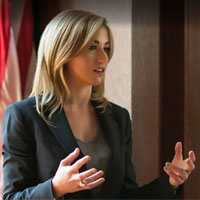Old Zionsville Misdemeanor Lawyer, Pennsylvania
Sponsored Law Firm
-
 x
x

Click For More Info:
-
The McGarrigle Law Firm
1500 Walnut Street, 22nd Floor Philadelphia, PA 19102» view mapWhite Collar Crime, Criminal Appeals, DUI&DWI Trial Experience & Zealous Advocacy
The Firm’s devoted attention to your individual concerns, our vast trial experience in all types of criminal matters, and our skillful advocacy will ensure that your rights are protected.
800-934-5330
Paul M. Aaroe
✓ VERIFIEDPaul M. Aaroe, II, Esquire. Over 30 years of experience. Personal and professional services. Son of Superior Court Judge Paul Aaroe. Dedicated ... (more)
Zak Taylor Goldstein
✓ VERIFIEDZak Goldstein is a Philadelphia criminal defense and civil rights attorney. Zak Goldstein has experience trying hundreds of cases before judges and ju... (more)
Lauren A Wimmer
✓ VERIFIEDAttorney Lauren A. Wimmer has represented individuals charged in both state and federal court with charges ranging from misdemeanors like drug and var... (more)

 Daniel McGarrigle Philadelphia, PA
Daniel McGarrigle Philadelphia, PA TestimonialsRecent Reviews
TestimonialsRecent Reviews Contact UsCall or Email
Contact UsCall or Email




